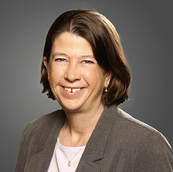Evaluating the Reasonableness of Time Restrictions in a Non-Compete Agreement
Understanding Time Restrictions in Non-Compete AgreementsTime restrictions are a fundamental element of non-compete agreements, determining the period during which you're prohibited from engaging in competitive activities after parting ways with your former employer.
In the state of Massachusetts, if you signed your agreement on or after October 1, 2018, the maximum allowable restriction period is 12 months. However, if you have an older agreement or find the legally compliant 12-month duration to still be unreasonable, it's essential to grasp how a court might evaluate the appropriateness of this specified timeframe. In this guide, we'll explore the factors influencing the reasonableness of time restrictions and offer insights to assist you in assessing your unique situation. Factors Influencing Reasonableness
Seeking Legal GuidanceDetermining whether the length of time restricted in your non-compete agreement is reasonable requires a comprehensive evaluation of several factors, including the nature of the business, industry norms, geographic scope, competition, and your role.
Assessing the reasonableness of time restrictions in a non-compete agreement can be complex, involving a careful analysis of various factors. It's often advisable to consult with an experienced attorney who specializes in non-compete agreements. Legal professionals can help you understand the implications, explore potential challenges, and guide you through the negotiation or litigation process, if necessary. |
We're Here to Help.OR
|
Questions About Your Non Compete Agreement?
Our Solutions Roadmap is a quick and easy way to share the details of what you are facing and receive preliminary feedback from a member of our team. Use the button below to get started- it is 100% confidential and 100% free.
Meet Our Employment and Non Compete Lawyers

Emily Smith-Lee is the owner and founder of slnlaw. She is a 1996 graduate of Boston College Law School. She was previously a partner at the Boston office of a large international firm, where she worked for thirteen years before starting the firm that became slnlaw in 2009. She has been recognized as Massachusetts Superlawyer each year since 2013, and in 2018 earned recognition as one of Massachusetts Lawyers Weekly's Lawyers of the Year. She has written a book on employment law: Rules of the Road, What You Need to Know About Employment Laws in Massachusetts, been interviewed by the Massachusetts Superlawyers magazine about non compete agreements, and written an op-ed in the New York Times about the dangers of non competes. Along with the rest of the slnlaw team, she has helped hundreds of clients navigate, negotiate, or defend against their non compete agreements.

Rebecca Rogers: Rebecca is a 2006 graduate of Boston College Law School, and has worked with slnlaw since 2013. She previously worked as an intellectual property litigation attorney for Fish & Richardson in Boston, Massachusetts, and clerked for the Massachusetts Supreme Judicial Court. Rebecca has helped many clients understand and evaluate their non compete agreements and develop strategies for defending against non compete enforcement and negotiating resolution.

Jenna Ordway: Jenna is a 2013 graduate of Quinnipiac Law School, and also earned an LLM in Taxation from Boston University in 2015. She has been affiliated with slnlaw since 2011, first as a law clerk and then as an attorney. Jenna has been recognized since 2019 as a "Rising Star" by Massachusetts Superlawyers. Jenna works with employers to develop reasonable and enforceable employee agreements, including non competes. She has also helped employees understand and evaluate their non compete agreements and develop strategies for defending against non compete enforcement and negotiating resolution.

Elijah Bresley: Eli is a 2014 graduate of Seton Hall Law school, and has worked with slnlaw since 2020. He previously worked for a boutique employment law firm outside of Boston, and then for the Labor and Employment department of a large Boston firm. He also spent a year clerking for the judges of the Superior Court in Hartford, Connecticut. Eli has helped clients both evaluate and negotiate their non compete agreements, and defended non compete claims in state and federal courts.
How We Can Help
Count on our dedicated legal professionals specializing in non-compete agreements to provide expert guidance, ensuring that time restrictions are evaluated comprehensively and your rights are protected. You can use the button below to schedule a call back from a member of our team, or give us a call at 781-784-2322.





